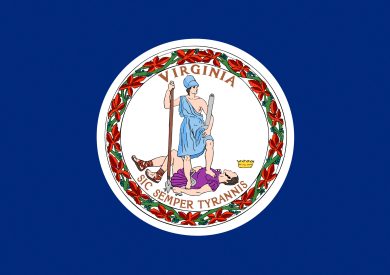
 Popular Cities For Lending in Virginia
Popular Cities For Lending in Virginia
Hampton
Lynchburg
Newport News
Norfolk
Portsmouth
Reston
Richmond
Roanoke
Suffolk
Virginia Beach
In the Virginia real estate market, grabbing properties before your competition is essential for making the best deals. Although real estate investors sometimes go the traditional route and seek bank loans, the process is anything but speedy.
When time is of the essence, waiting for the lengthy process of getting approval is not an option for most investors. Virginia hard money lenders specialize in providing hard money loans which provide quick funds to investors. These loans are for a non owner occupied property or in some cases for business purpose loans.
Virginia Hard Money Lender FAQ’S
Below are some of the most frequently asked questions we get regarding hard money loans and lenders in Virginia.
What Do Virginia Hard Money Lenders Specialize in?
Virginia hard money lenders specialize in providing short-term, creative financing for real estate investors. If you seek a conventional lender to purchase an investment property, your loan request will be based on the property’s value and your assets. Your credit score, job, and finances will be scrutinized intensely. Hard money lenders base their final loan decisions on the after-repair value. The ARV represents the potential value of a property after all repairs have been accomplished.
What are the Benefits of Virginia Hard Money Loans?
Virginia hard money loans offer advantages that traditional banks cannot. Lenders like Acamnet Financial offer a higher level of flexibility than banks. When qualifying for this type of loan, lenders do not delve too deeply into the finances of real estate investors. In most cases, simply present the property and your plans, which saves you the hassle of gathering countless financial documents.
Do Virginia Hard Money Lenders Look at my Credit Score?
One of the greatest benefits of working with Virginia hard money lenders is the lack of credit score requirements. One of the first things a bank does is check your credit score. You can get approved for a hard money loan in Virginia even if you have bad credit or poor credit, bankruptcies, and foreclosures in the past. Virginia Hard money lenders primarily care about the property you are purchasing.
What is the Interest Rate & Points for Hard Money Loans in Virginia?
Interest rates for hard money loans in Virginia are typically higher than traditional bank loans (conventional loans) because of the greater risk lenders must take on when approving loans. When searching for a hard money lender near me in Virginia, you will find average interest rate is between 8%-15%. You should also be aware that lenders sometimes charge points that are meant to offset their administrative costs. Each point represents 1% of the total loan amount. The average points lenders charge is between 1 to 3. Some lenders may charge up to 10 points. These points are due upfront or at closing, depending on the lender.
What Should I Look for in a Virginia Hard Money Lender?
There are many benefits to working with a Virginia hard money lender. You just need to make sure you are working with the right lender. You can rely on Acamnet Financial Group when you need us most. We offer reliability, consistency, experience, and support. As a real estate investor, you know the importance of grabbing the best property deals when they become available.
How can Hard Money Lenders in Virginia Help Me?
Whether you are new to real estate and real estate projects or an old pro, you know having the capital to purchase real estate is essential. Without funds, you will miss out on real estate transactions. When you partner with hard money lenders in Virginia, you will quickly get the money you need without jumping through the hoops of traditional bank lenders.
How do I get a Hard Money Loan in Virginia?
When you want a hard money loan in Virginia, begin by preparing the property information. Location, size, purchase price, after repair value, repair costs, etc. In most cases, the financing will be based on these numbers. Then, apply for a hard money loan in Virginia using this information and supply some financial information. Then, an appraisal will be ordered to assess the loan-to-value ratio, which will influence the loan amount.
How do I Refinance a Virginia Hard Money Loan?
Refinance a Virginia hard money loan will involve moving from a high interest, short term loan to a longer term, usually lower interest rate loan. Typically a conventional type of loan. When refinancing a Virginia hard money loan you will find it will have a more stringent set of guidelines. You will need to have sufficient credit and income qualifications. As the lending landscaping and regulations constantly change, you want to consult a knowledgeable conventional loan expert.

Current Real Estate Trends In Virginia (2025)
The real estate market in Virginia is constantly changing due to a variety of economic factors that affect both buyers and sellers. Analyzing current trends in this market can provide valuable information to individuals and companies involved in real estate transactions.
This article will analyze the current real estate trends in Virginia, focusing on market conditions and buyer and seller dynamics. We will review relevant data and statistics, providing an objective and knowledgeable assessment of the state of the real estate market in Virginia.
Our analysis will be based on a comprehensive review of information, including recent sales data, market reports, and expert opinions. We will use an academic style of writing that emphasizes objectivity and analytical rigor, giving readers a thorough understanding of the current real estate trends in Virginia.
Overview
Virginia’s real estate industry is currently witnessing a remarkable surge in both housing prices and property values. This surge can be attributed to the high demand for homes coupled with the limited availability of properties. As a result, property values have experienced a significant increase, highlighting the prosperous market conditions in the state.
Market Conditions
The Virginia property market is a dynamic and ever-changing environment. To get a better sense of the current trends, it is important to take into account the following factors:
- Growing demand: Population growth and low interest rates have increased the need for properties in Virginia.
- Limited stock: The number of available properties is low, leading to competition among buyers.
- Increasing prices: High demand and little inventory is driving up property costs.
- Resilience: Despite the pandemic, the real estate sector in Virginia has shown strength and sustained progress.
Buyer and Seller Dynamics
The Virginia property market is heavily influenced by several factors, including the balance of supply and demand, as well as the negotiating strategies of both parties. Currently, demand for Virginia real estate is high while inventory is low. This has created a competitive atmosphere where buyers must make quick decisions and face multiple offers. On the other hand, sellers are able to set higher prices and have more bargaining power.
In this tight market, buyers must be prepared to act quickly and be flexible when it comes to negotiating terms. On the other hand, sellers must be mindful of the market conditions and not get too aggressive in their asking prices. Both buyers and sellers must be aware of their strategies and be ready to adjust them in order to take advantage of the current market dynamics.
The Virginia property market is ever-changing, and it is important for both buyers and sellers to be aware of the market forces at play. By understanding the current conditions, both parties can make more informed decisions that will benefit them in the long run.
Sources
https://www.noradarealestate.com/blog/virginia-housing-market/
https://www.aceableagent.com/blog/virginias-fastest-growing-markets-and-trends/
https://www.houzeo.com/blog/virginia-real-estate-market/

All About Virginia
Located in the Mid-Atlantic and Southeastern regions of the United States, Virginia spans 42,774.2 square miles, making it the 35th largest state in the country.
With a population exceeding 8.68 million, approximately 35% of the residents reside in the Greater Washington metropolitan area.
Virginia’s capital is Richmond, while its most populous city is Virginia Beach.
The state boasts a diverse population comprising various ethnicities and cultures.
Renowned for its historical significance, Virginia was the site of the first permanent English colony in the New World in 1607. It played pivotal roles in the American Revolution and the American Civil War, witnessing significant battles during these periods.
Politically, Virginia exhibits a distinctive landscape with a competitive environment for major parties. Its state government comprises the Virginia General Assembly and local city/county governments.
The state’s economy showcases diversity, with a strong agricultural presence in the Shenandoah Valley, a thriving high-tech industry in Northern Virginia, and prominent military facilities in Hampton Roads.
Virginia’s geographical features, including the Blue Ridge Mountains and the Chesapeake Bay, attract tourists and outdoor enthusiasts.
Overview of Virginia
Virginia, a state located between the Atlantic Coast and the Appalachian Mountains, is known for its diverse population, rich history, and significant contributions to the development of the United States. With a total area of 42,774.2 square miles, it ranks 35th in size among all U.S. states.
The population in 2022 exceeded 8.68 million, with approximately 35% residing within the Greater Washington metropolitan area. Virginia’s history dates back to the establishment of the first permanent English colony in the New World in 1607. It played a significant role in the American Revolution and Civil War. The state’s politics and beliefs have been shaped by these historical events, with myths and stories deeply embedded in local and national cultures.
This rich history transitions seamlessly into the discussion of Virginia’s geography and natural features.
Geography and Natural Features
The state’s diverse landscapes and natural features contribute to its appeal as a destination for tourists and outdoor enthusiasts. Virginia’s geography encompasses a range of natural wonders.
In the western and southwestern parts, the majestic Blue Ridge Mountains offer stunning vistas and opportunities for hiking and camping.
The state’s central region lies mainly within the Piedmont, with rolling hills and fertile farmland.
Eastern Virginia is part of the Atlantic Plain, with the Middle Peninsula forming the mouth of the Chesapeake Bay. This region is known for its coastal beauty, sandy beaches, and scenic marshes.
These diverse landscapes provide a wealth of outdoor activities, from hiking and fishing to boating and birdwatching.
Transitioning to the subsequent section about population and diversity, Virginia’s natural features have played a significant role in shaping the state’s cultural identity.
Population and Diversity
With a population of over 8.68 million, Virginia showcases a rich tapestry of ethnicities and cultures. Approximately 35% of the population resides within the Greater Washington metropolitan area, while Fairfax County is the state’s most populous political subdivision.
Virginia’s diversity is evident in its cities and towns, where people from various backgrounds coexist and contribute to the state’s vibrant social fabric.
The history of Virginia has influenced its population, with the state being one of the original Thirteen Colonies and playing significant roles in the American Revolution and the American Civil War. This colonial history shaped the beliefs and politics of Virginia, which will be explored in the subsequent section.
Colonial History
Having a deep-rooted colonial history, Virginia played a significant role in shaping the early development of the United States.
As the first permanent English colony in the New World, Virginia faced numerous challenges, including conflicts with Chief Powhatan and mass starvation. However, the colony’s tobacco exports fueled its growth and established it as an important economic center.
Virginia also witnessed critical events during the American Revolution and Civil War, further solidifying its historical significance. These events, along with the state’s status as one of the original Thirteen Colonies, have had a lasting impact on Virginia’s politics, beliefs, and cultural identity.
The state’s colonial history laid the foundation for the subsequent development of its state legislature, which will be discussed in the following section.
State Legislature
Established in July 1619, the Virginia General Assembly is the oldest law-making body in North America, consisting of a 40-member Senate and a 100-member House of Delegates.
The Virginia General Assembly plays a crucial role in shaping the state’s legislation and governance. Cities and counties in Virginia function as equals within the legislative process, ensuring representation for all regions. The state government manages most local roads in each town or county, emphasizing local control’s importance.
The legislative body operates within a competitive political landscape, with both major parties vying for power. The unique system of prohibiting consecutive terms for governors contributes to the diversity of leadership within the state.
The history of advocating for greater local control and representation has shaped the structure and functioning of the Virginia General Assembly, making it a significant institution in Virginia’s governance.


 Popular Cities For Lending in Virginia
Popular Cities For Lending in Virginia